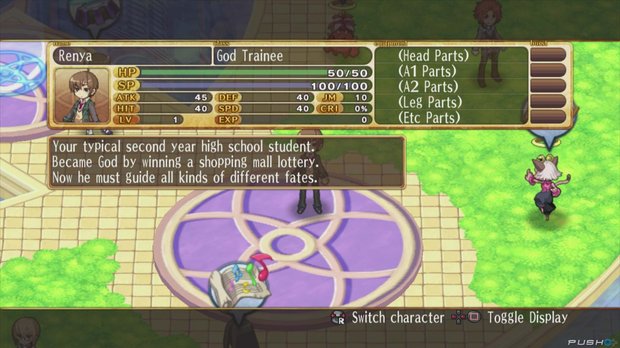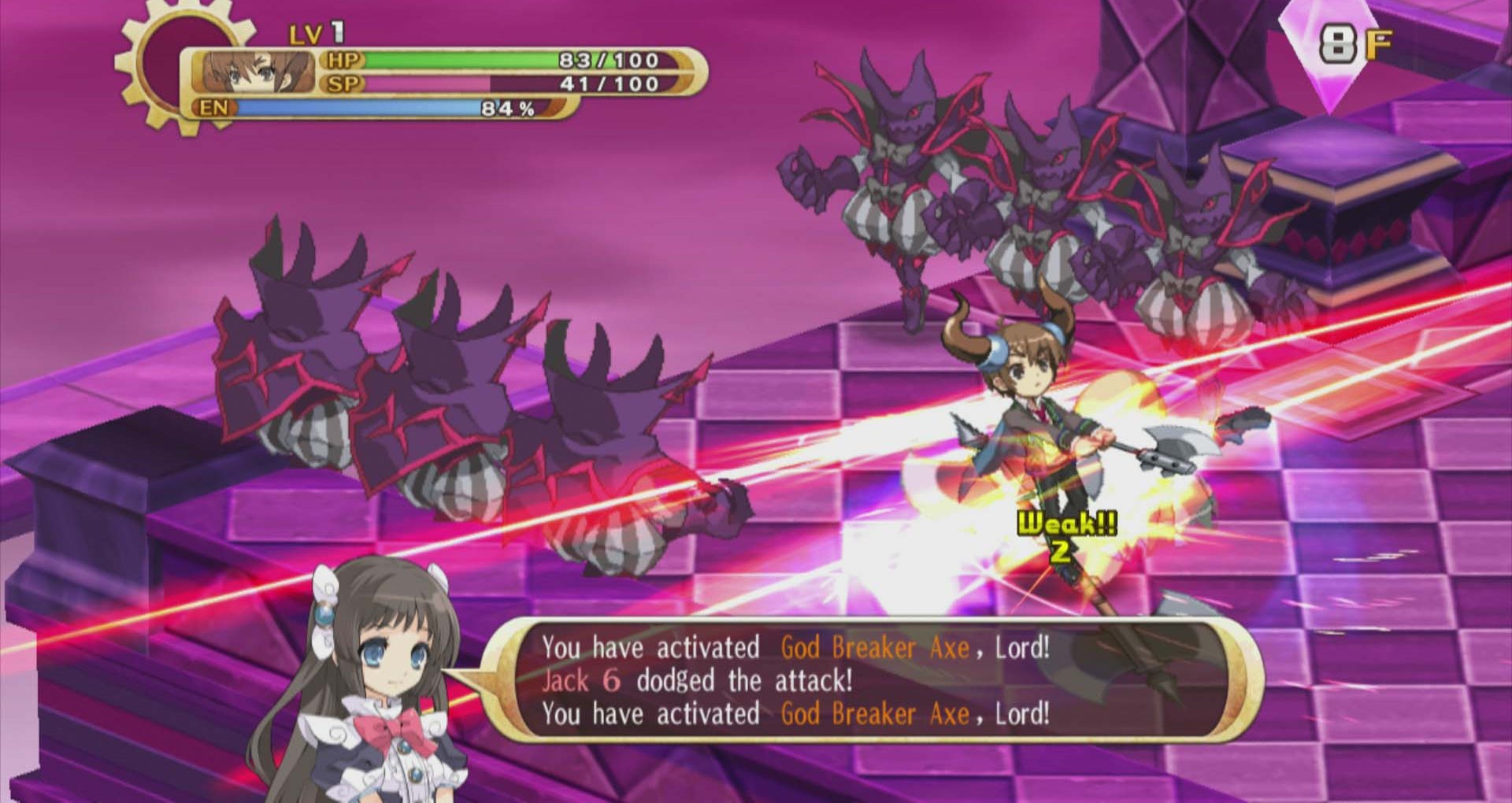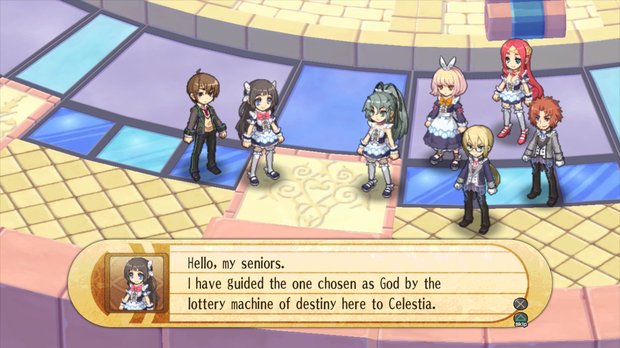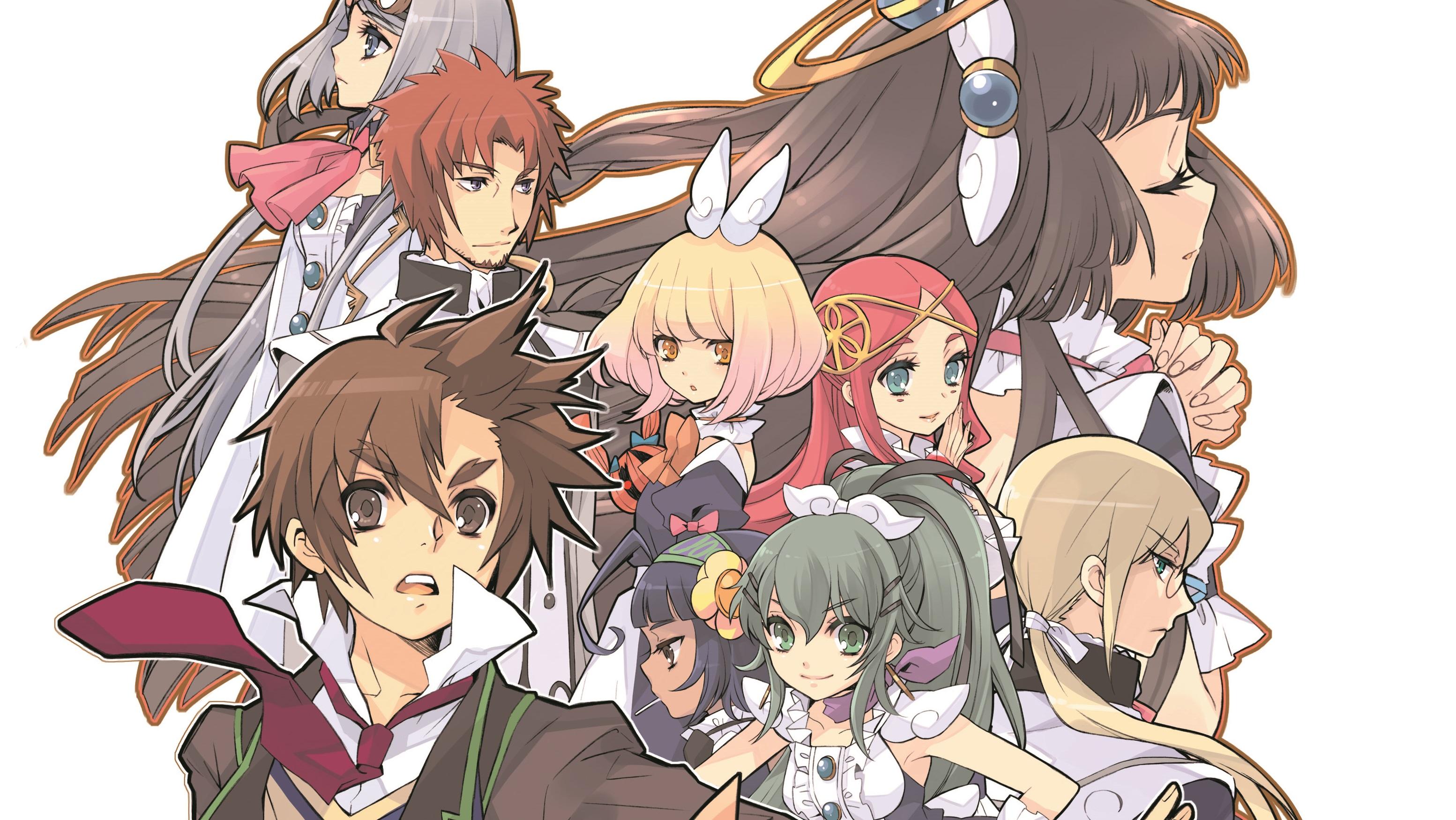GamesRadar+ Verdict
Pros
- +
Trademark NIS humor
- +
Addictive nature to randomized dungeon crawling
- +
Deep customization system
Cons
- -
Far too many tutorials
- -
Some grindy segments
- -
Angel companions arent very useful
Why you can trust GamesRadar+
We all know the familiar tale of Cinderella and Prince Charming. The bit about her lovely magic spell wearing off right at the stroke of midnight? Unfortunate. But what if Cinderella could've changed her fate? Turns out, in the world of The Guided Fate Paradox, she--along with other fairytale characters and fantastical creatures--actually can. This dungeon crawler RPG, a spiritual successor to Z.H.P. Unlosing Ranger VS Darkdeath Evilman, is a raucous, light-hearted adventure that combines an interesting premise with roguelike action, creating an experience that manages to make grinding somewhat enjoyable.
You’re Renya Kagurazaka, one supremely unlucky high school student who’s never won a single prize in his entire life--until one fateful day, when he finally does win something: the chance to "become God." Rather than some useless trinket or coupon for a free meal, he’s actually won phenomenal cosmic powers that allow him to shape and grant the wishes of those who believe in him. This goofy setup successfully builds an interesting narrative that'll keep you eager to push on.

The Guided Fate Paradox is structured in such a way that every move you make requires extreme care, and thus builds surprisingly interesting tension. It does so by creating an environment where players explore the Original World and Copy World that form around the wishes themselves. The Original World is basically real life, whereas the Copy World is one that Renya can interact with to fulfill the desires of his clients. These worlds take the form of randomized dungeon floors, ripe with loot to collect and gold to pilfer. In stark contrast to games like Disgaea or La Pucelle Tactics, however, you’ll only guide one character throughout the playfield at a time. There are no other units to fall back on save for an angel companion, whose consistent spouting of the word “Lord” after every command can get grating. When an angel is defeated, it's sent out of the dungeon, but won’t lose its gear unless Renya falls. This makes them useful mules, even if they’re better off being utilized as punching bags to absorb damage and keep Renya safe.
The numerous randomly-generated floors and dungeons are addictive, and because they’re packed with plenty of loot to grind for, you’ll have plenty of incentive to keep on exploring. While you don't benefit from individual level-grinding, Renya's "Total Level" will grow as you conquer different floors. His base stats will rise, and you'll be able to take on more difficult dungeons without worrying about dying at every turn. This is a bit of a double-edged sword, even if overall progression does become easier with time, as the hours of progress you make exploring one dungeon won’t carry over to the next. You may be horrendously overpowered in one world, but find yourself struggling to keep up in another. This mechanic can be frustrating, in that equipment sets that work well for one area may not be beneficial later.

The Divinigram, a leveling system seemingly inspired by the License Board of Final Fantasy XII, is an interesting addition to Renya's growth as well, granting the use of artifacts that improve his abilities as well as boosting the effectiveness of those items. It adds another layer of strategy, ensuring that even seasoned roguelike players have something to busy themselves with when the dungeons begin to become familiar.
Unfortunately, The Guided Fate Paradox has unbelievably slow pacing at the beginning, due to bloated tutorials. The insistence on tossing tutorials and other lengthy conversations at the player is obnoxious, and are little more than frustrating hand-holding sections that leave you longing for actual gameplay. They're humorous enough, but could sour the experience for a good third of the game for some.
The Guided Fate Paradox is an entertaining mixture of strategy, cutesy errands, and character development, unfortunately marred by some intrusive tutorials. Still, as it stands, it's an excellent spiritual sequel to a cult favorite. Should you ever have some time after putting down Disgaea or another similarly wacky alternative, try this one out for size.

The Guided Fate Paradox is tons of fun, especially when it comes to wish fulfillment, but it could have benefited from less hand-holding and more powerful angel companions.
More info
| Genre | Role Playing |
| Description | Players take on the role of RenyaKagurazaka, a high school boy who has won the chance to be God. He has also gained the ability to fulfill peoples wishes with the power of a machine called the Fate Revolution Circuit. |
| Platform | "PS3" |
| US censor rating | "Teen" |
| UK censor rating | "" |
| Release date | 1 January 1970 (US), 1 January 1970 (UK) |




